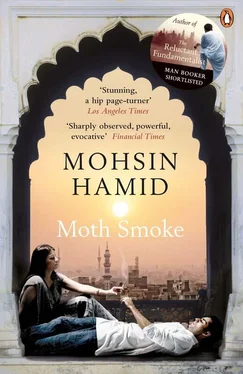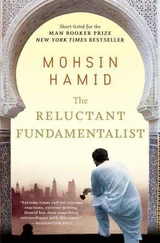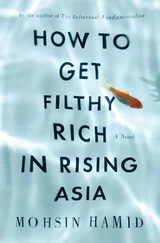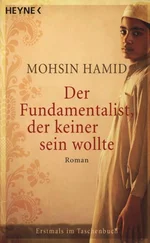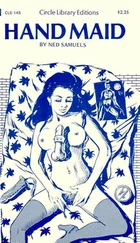In New York, a city of hot, muggy summers, Aurangzeb insisted that only an insane person would sleep with the air-conditioning off. Mumtaz disagreed, but baby Muazzam settled the question: he would cry all night unless serenaded by the cool hum of the air conditioner. A triumphant Aurangzeb agreed to Mumtaz’s terms of surrender: the AC would be left on at night, but at a thermostat setting of no more than three (with nine, of course, being the coolest).
When the couple returned to Lahore, where young Muazzam had his own room and a nanny, Mumtaz renewed her campaign. ‘We have to conserve electricity,’ she would say. ‘The entire country suffers because of the wastefulness of a privileged few.’
‘I couldn’t care less about the country,’ Aurangzeb would reply. ‘Besides, you have a delusional and obsessive fear of pneumonia.’
‘I think you underestimate the risk pneumonia poses to all of us. Besides, I really do feel that we have a duty to use electricity responsibly.’
‘Then sleep outside. The AC is staying on.’
The results of Mumtaz’s renewed attempts to reduce the air-conditioning in the life she shared with Aurangzeb were minimal in terms of any change in the temperature. But her relations with her husband had grown chilly since their return from America, and his persistence on the AC issue did nothing to restore the warmth that had disappeared. In fact, now that they were back in Pakistan, Aurangzeb was far less conciliatory toward her than he had been before. For his part, he felt that she should be grateful for the style with which he (actually his father) supported them. He felt that the cars and clothes and dinner parties made him a good husband, and he resented her inability to demonstrate gratitude through obedience as his wife.
Mumtaz would later wonder whether Darashikoh’s lack of air-conditioning played a role in attracting her to him. No one will ever know the answer to that question, but it must be said that if air-conditioning doomed her relationship with her husband, it doomed her relationship with his best friend as well. You see, Mumtaz was over-air-conditioned and longed to be uncooled, while Darashikoh was under-air-conditioned and longed to be cooled. Although they walked the same path for a while, Mumtaz and Darashikoh were headed in opposite directions.
Yes, and no matter how important air-conditioning was to Mumtaz, to Aurangzeb and Murad Badshah and Professor Superb, it was more important to Darashikoh Shezad, for it took his mother from him and propelled him inexorably toward a life of crime.
On a midsummer night that followed a day when the temperatures spiked into the hundred and teens, much of Lahore was plunged into darkness. The pull of innumerable air conditioners stressed connections and wires and the systems that regulated the eddying currents of electricity past their capacities, and one after another, they failed. The wind chose that night to rest, and neighborhoods baked in the still heat.
Perhaps it was not surprising that Darashikoh’s mother decided to sleep on the roof on that tragic night. After all, she had often done so as a child growing up in Khanewal with no air-conditioning. She told her son and servants to carry two charpoys up to the roof, and such was her command over her household that they managed to do so.
Darashikoh would remember having a cup of hot tea with her before lying down on his charpoy, his arms crossed under his head, staring up at the stars. He fell into a deep sleep, so deep that he never heard the firing of the bullet that would claim his mother’s life.
His mother may have been asleep as well, for when her son found her dead the next morning, she was lying on her charpoy with her eyes shut. Or she may have been awake. She may have heard the repeated coughing of a Kalashnikov being fired into the sky. But even if she did, she probably thought nothing of it: there were two weddings in the neighborhood that night, so the celebratory sound of automatic gunfire was only to be expected. Of course, the bullets might not have come from those weddings. Someone might have fired a Kalashnikov in the air to announce a victory in a kite fight, a job promotion, or the birth of a child. A young man may have fired just to fire, or to let the neighborhood know that his was not a house to be robbed. Perhaps the weapon was fired at the moon, a metallic human howl.
Indeed, it is possible that only the one bullet was fired that night, for only one was found in the morning. It pierced Darashikoh’s mother’s throat from above, passed through the charpoy, and rolled, spent, to the edge of the roof. Her death was probably not instantaneous, since her spinal cord was not severed by the injury. The coroner was of the opinion that she bled to death in silence over the course of some minutes, unable to get up or to make a sound. The pool of her blood was already dry when the lightening sky roused Darashikoh from his sleep.
After that night, Darashikoh would have a recurrent vision which came to him not only when he was asleep but when he was awake as well. Once he was sitting with Mumtaz when the vision came, and he described it to her in this way: ‘I imagine Lahore as a city with bullets streaking into the air, tracers like fireworks, bright lines soaring into the night, slowing, falling back on themselves, a pavilion collapsing, the last dance of a fire before its fuel is consumed. And I lie on a field in the center of town, on grass fenced in by buildings, looking up at the stars with a sweet stem in my mouth, watching the brilliant arcs descending toward me.’
Mumtaz could not understand why people fired into the air as though the bullets would never come down again. She said, ‘People don’t believe in consequences anymore.’
But Darashikoh believed in consequences. He knew that his mother would not have died if the AC had been cooling her room that night, and when he lost his job and had his power disconnected, he felt more than just the discomfort of the heat in his house. He felt an insecurity, a disease that gnawed at him day and night. Perhaps he merely feared the loss of social status that the end of his air-conditioning represented. Or perhaps he feared something more profound and less easily explained. He needed money to have his power and air-conditioning and security restored, and he swore that nothing would stand in his way. He, a man who hated guns, came to accept that he would have to use one.
It is possible that Darashikoh could have learned something from his young servant, the mystically minded Manucci.
If one had asked Manucci during his days as a street urchin, as he sat, in defiance of municipal orders, astride the gun Zam-Zammah, Manucci would probably have said that ACs were hot. The first time he saw one jutting out into the street from the wall of a shop in the old city, he walked up to the noisy box and was amazed at the blast of hot air it sent straight into his face. Why do people turn on hot air in the middle of summer? he often wondered.
When he asked, people thought he was crazy. ‘What do you mean ACs make hot air?’ they would say. ‘They make cold air. Everyone knows that. That’s the way it is: ACs make cold air. That’s what they’re for.’
‘Do you have an AC?’ he would ask. ‘No,’ they all had to admit. No one had an AC. The other beggars, the vendors, the runners at paan shops, the ne’er-do-wells: none of them had an AC. But they all knew ACs made cold air, everyone knew that. That’s what ACs were for.
One day Manucci met an AC repairman. ‘You don’t seem to be doing a very good job,’ Manucci told him. ‘All the ACs around here are making hot air.’
‘You’re crazy, boy,’ the AC repairman said.
Manucci realized what all this had to mean. It meant people thought what he called hot air was cold air. So whenever he walked down the street past the back of a protruding AC, he would smile and say, ‘What cold air it makes. Wonderful.’
Читать дальше
